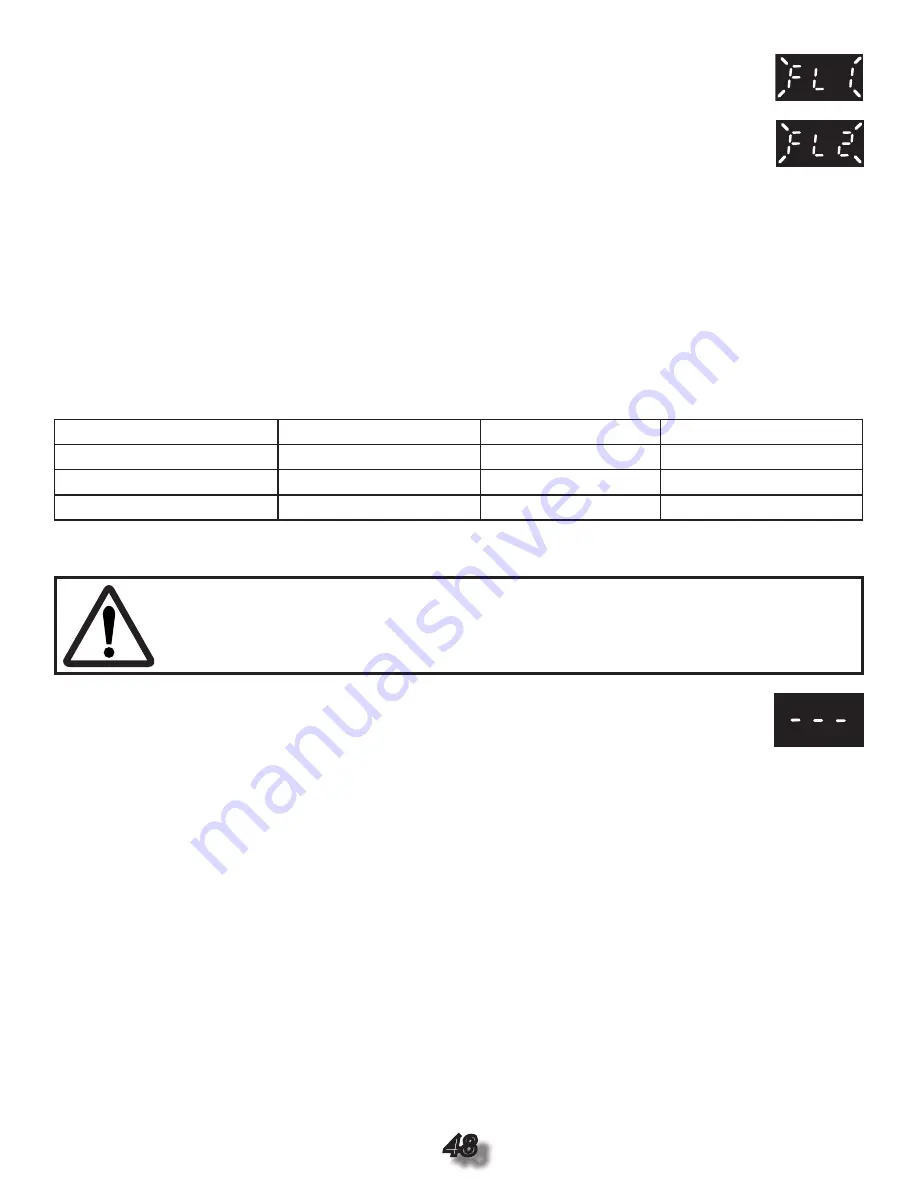
48
A4.0 Testing The Flow Switch
When the “FL1” or “FL2” message appears, it means the fl ow switch contacts have failed to
close when the circulation pump was on, or failed to open when the circulation pump was
off. This could be caused by an obstruction in the fl ow path or by a bad switch. The fi rst
thing to look for is an obvious obstruction, remembering (while not likely) that it is possible
for a small object to work its way into the plumbing where it will not be obvious. After verify-
ing no obvious blockage exists, the fl ow switch can be tested. Refer to page 26 for fl ow switch testing
instructions.
A5.0 About Fuses
When current passes through a conductor the conductor heats up. If the conductor is a heavy piece of
wire or a strip of metal, it will pass large currents and generate very little heat. If a wire is fi ne, or a strip
of metal is thin, it will heat up at lower current levels. Fuses rely on this principle to protect circuits from
massive current fl ows by simply melting if their current rating is exceeded. By selecting different alloys
for the fuse element, fuses can be made to have their current rating exceeded for a short period of time.
Such slow-blow fuses are excellent for protecting motor circuits where start up currents (surge currents)
are higher than running currents.
Fuse
Part Number
J-315, J-325
J-335, J-345
Main Power, 20A
6660-106
X
Main Power, 30A
6660-105
X
Transformer Primary, 1.5A
6760-120
X
X
Testing Fuses
A good fuse should read continuity (Ø ohms); a blown fuse will read no continuity (infi nite ohms).
Caution:
Make sure replacement fuses are exactly those listed above. Never test a fuse
for continuity while it is installed in the fuse holder.
A6.0 The Watchdog (---)
Three horizontal dashes with no other control panel indicators illuminated is a result of the
Watchdog circuitry detecting a potential destructive condition within the hot tub.
Before making the service call, have the customer turn off power to the hot tub, then
turn it back on. If this corrects the problem, have the customer monitor the hot tub and call if it oc-
curs again.
There are many conditions that can cause a Watchdog error message. Except for a runaway heat condition,
most are caused by a faulty circuit board, bad hi-limit or temperature sensor. On rare occasions a control
panel or a bad transformer will cause Watchdog. Confi rm this by using a test panel and testing the trans-
former connections on the circuit board,
refer to appendix page 57.
1.
2.
3.
4.
Turn the power to the hot tub off. Verify proper resistance of the hi-limit and temperature sensors (see
appendix page 55). Replace the defective temperature or hi-limit sensor, then re-stest the system. If the
Watchdog error goes away, skip steps 2-4.
If the heater is not overly hot to the touch and the Watchdog displays an immediate dashed line error, the
circuit board is probably bad. Check the transformer primary and secondary voltages (page 57) before
changing the circuit board.
The temperature in the heater may have reached 118ºF (48ºC). If the heater got too hot, check for fl ow
restrictions and correct the problem.
If you cannot reproduce the Watchdog error and the hi-limit and temperature sensors check out OK, tell
the customer to call you if the Watchdog display reappears.
Summary of Contents for Premium J-325
Page 45: ...45 Appendix ...














































